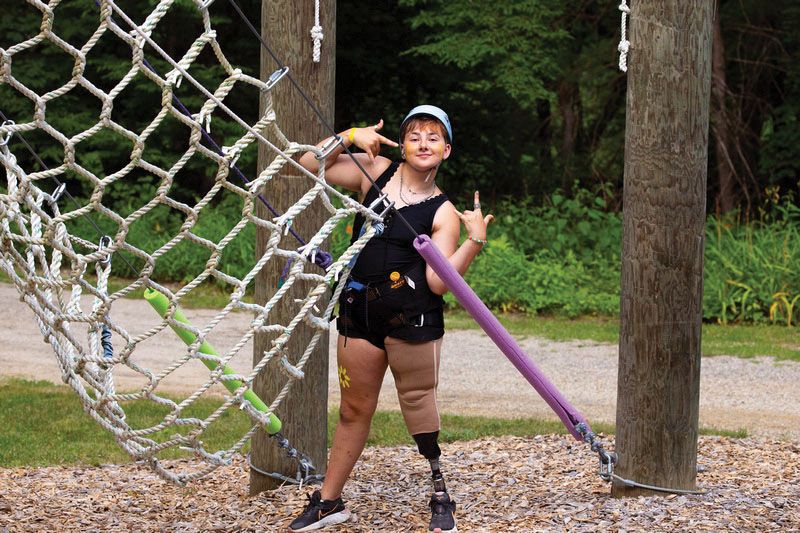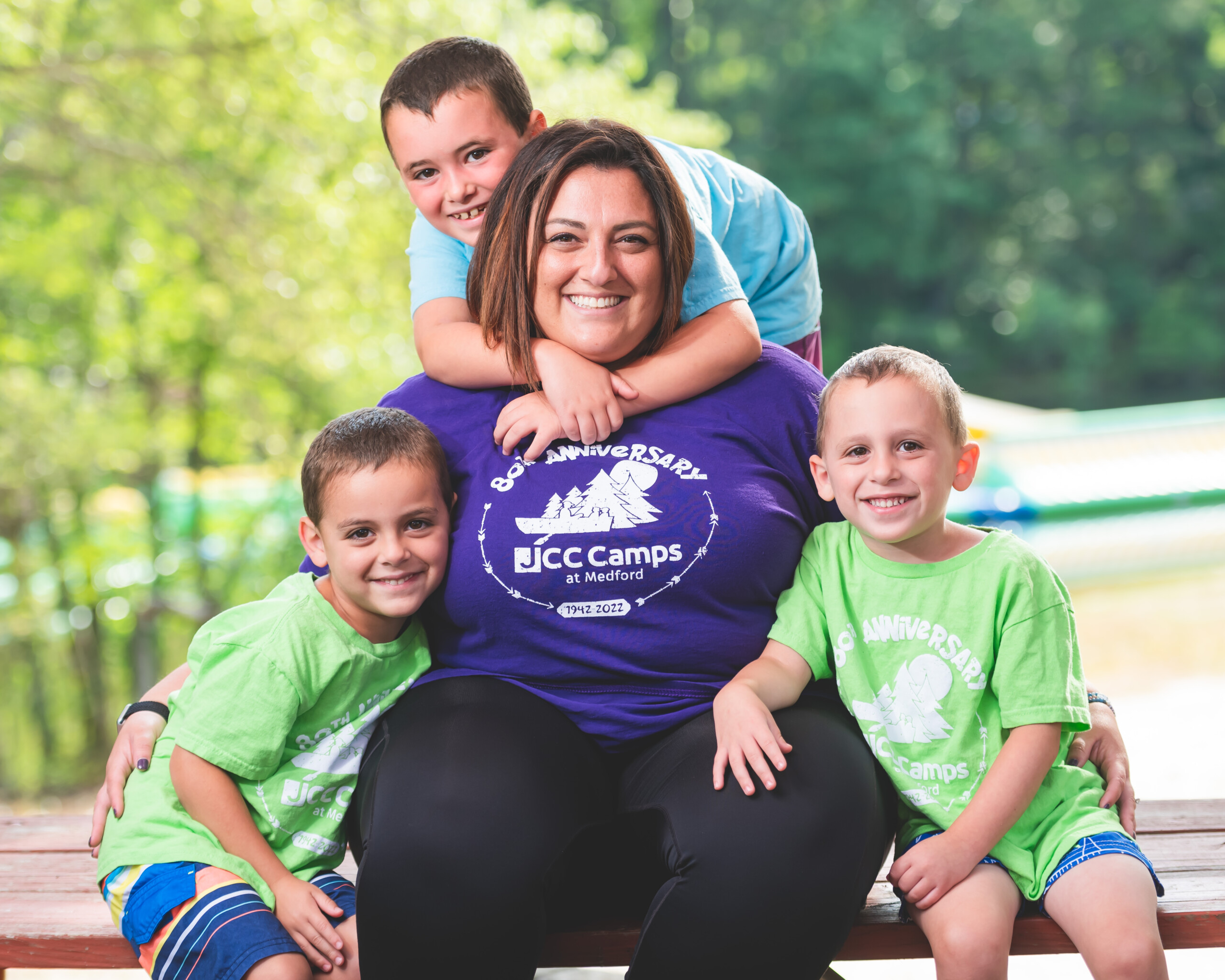Include your children when you whittle down your list of summer camp possibilites, say experts. “If your child feels a part of the decision-making process, his chances of having a positive experience will improve,” says the American Camp Association (ACA). But what’s the best way to go about it?
Research First
Before talking to your child about camp, do some research and choose a few candidates, suggests Judy Macnow, whose Haverford, PA-based Camp and Tour Consultants helps parents select camps.
“Know your parameters,” she advises. “Do you want your child to attend a day camp? With residential camps, do you know where you want your child to be geographically, for example, within a 3- to 4-hour drive from home?”
When matching camps to your budget, “don’t be shy about asking if a camp offers financial assistance,” says Mary Ellen Folsom, executive director of the ACA New Jersey Section. “Just ask early. Many camps offer assistance, but once it’s allocated, that’s it.” Some camps will structure monthly payments, if arranged in advance.
You should also get a sense of how many weeks, and in the case of day camp, how much of the day, you want your child to attend camp. Do you have other preferences, such as whether the camp is single sex or coed?
Look at Websites
Next, look at camp websites. You can find a large selection in the MetroKids searchable online Camp Guide or in MetroKids Magazine. An ACA website, www.campparents.org, also includes a search of camps it has accredited. Get a sense of various camps’ structure and style, choosing candidates you think might fit your child’s interests and personality.
“Think about the environment that best suits your child,” suggests Rachel Anderson, program manager for Delaware Technical & Community College Summer Camps, which has two sites. “Our Newark site is more suburban, more conducive to outdoor play and activities. Our Wilmington location is more oriented to indoor activities such as science and theater.”
Also think about your child’s interests. “Does your child have a passion, like soccer or computers? Then you might choose a specialty camp. If your child has a variety of interests, a traditional camp might be a better fit,” says Folsom.
“You want to find a good match in style,” says Macnow. “For some children, a very low key atmosphere with smaller numbers of kids works best. Other children like the energy of more kids around them.” Some camps are highly structured, while others let campers design their own schedules of activities.
Request Materials
Once you’ve chosen a few camps to discuss with your child, request their brochures. Many camps will also send DVDs to prospective campers’ families, while others offer virtual tours online that you can view with your child. “We write the description of our summer camp for both our parents and our kids,” says Anderson. “We hope they read it together.”
“Just remember, those DVDs often make the camp look like the best place on earth,” says Folsom. “Not every moment is as exciting and glossy as the DVD.”
With some decisions made, a few camp candidates chosen, and brochures, DVDs or web tours at hand, it’s time to bring your child into the decision.
Talking to Your Child
“It might not be one conversation,” notes Macnow. “Everybody needs time to digest things, even adults.” A good approach, she says, is to focus first on the fun. “We think summer camp is something you’ll really enjoy. Let’s look at some camps and see if you find something you’d be really excited about,” she suggests saying.
When you begin looking at specific camps, discuss different types of activities to learn which most interest your child. If you’re showing your child specialty camps, also include camps with more varied programs. “A child might be really interested in art, but also wants outdoor or water activities,” says Macnow.
As for a camp’s style, “some kids don’t want to be scheduled all day. They want to have a say in their activities,” says Macnow. “I would ask, ‘If we found a camp that has a lot of activities you like, do you think you’d like to stay with your group, or would you like to choose what you do all day?’”
Sometimes, she says, kids won’t have an opinion. “Even though you’re asking the question, it might not really make a difference to the child, or the child might just not know.” For kids who are unsure what they’d like to do, sampling activities at a traditional camp might be the way to go.
Day or Overnight?
If you give your child the choice of day or overnight camp, or want your child to attend a residential camp for the first time, proceed cautiously, suggests Macnow. “There’s a difference between being nervous about going away and not being ready,” she says. “A child who’s just not there yet could be frightened and that could close the door to even talking about day camp.”
Some kids are ready for sleep-away camp at age 7, while others won’t like the idea even into their teens. “Sleeping away from home at a relative’s or friend’s home helps prepare them,” says Folsom.
“If your child’s resistant, talk about what he’s nervous about,” suggests Macnow. “You can say something like, ‘Overnight camp is a chance to spend lots of time with kids your age, make friends and do things we can’t do at home. We think this would be something really fun for you. If you give it a chance, you might find it something you’d be really excited about.’”
Attending overnight camp for fewer weeks the first year can sometimes make a child more receptive to a longer stay the following summer, she says.
Visit the Camp
Once you’ve discussed camp choices with your child and have a camp or two in mind, Folsom strongly recommends visiting the camp. “There’s nothing that takes the place of an actual visit,” she says. “Camps give tours all year-round. Many, many camps have staff on-site and available. Even if you don’t visit, it’s important to meet the director face-to-face (at a local office) and determine if your philosophies are the same.”
Here are questions the ACA recommends you ask a camp director.
- What is the camp’s philosophy and program emphasis?
- What training do counselors receive, what counselor qualities do you seek, what are their ages, and what is the counselor-to-camper ratio?
- How are behavioral and disciplinary problems handled? How does the camp handle homesickness and other adjustment issues?
Be sure to ask for references from other parents. The ACA suggests you ask if the camp is accredited, and if not, why.
Tom Livingston is executive editor of MetroKids.






